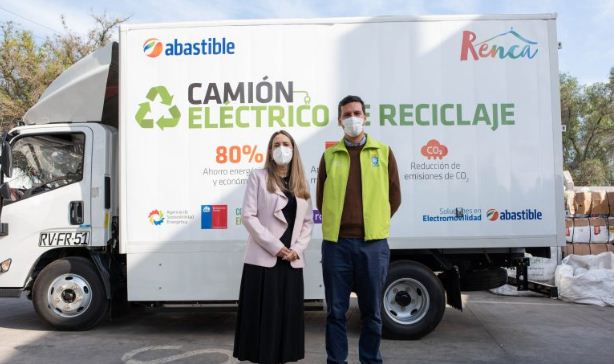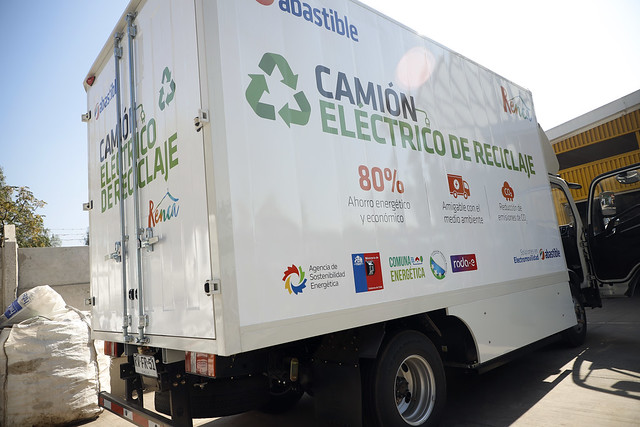
Chile: Abastible, Road Energía and the Municipality of Renca Introduce Innovative Electric Truck for Recycling

For more than five years, Chile has established the Energy Commune program, which functions as a management and accreditation tool for the country’s localities, whose main objective is to design plans and implement actions aimed at the energy planning of the communes.
In addition, the plan seeks, among other things, to contribute to Chile’s energy development model, emphasizing community-based projects, exploiting the potential of energy efficiency and renewable energies, and raising citizens’ awareness of general issues related to energy and towards a responsible and participatory consumption behavior.
This initiative, sponsored by the Ministry of Energy, has brought different private companies together with the public sector to present innovations, mobility solutions and services framed in sustainability and electromobility.
In this sense, Abastible, a Chilean company dedicated to the distribution of liquefied gas for domestic, commercial and industrial use, joined Roda Energía to implement the project that provides an electric truck exclusively for recycling to the community of Renca, Santiago de Chile.
Vehicle Details
The truck has the capacity to carry 2.7 tons of material, has an autonomy of 180 kilometers with a full charge and takes about 4 hours to charge to 100%.
Compared to an oil-powered truck, its operation projects a reduction of 8.4 tons of CO2 equivalent per year, in addition to generating economic savings of 83% and energy savings of 81%.

Abastible’s Development, Innovation and Projects Manager, Paula Frigerio, highlighted the importance of establishing alliances with the public sector to bring electromobility to the recycling process with all the environmental, social and economic benefits it brings.
For his part, the Mayor of Renca, Claudio Castro, pointed out that in the commune a series of actions have been proposed to move towards carbon neutrality, addressing energy sustainability as a central axis at the communal level.
“Thus arose the first version of our Local Energy Strategy, developed in a public-private partnership that allowed us to finance and join the Energy Commune Program, which has quickly put us at the forefront in this area, highlighting programs to address Energy Vulnerability and Inclusion and electromobility, and a series of different initiatives and projects that are being implemented today,” he explained.
It should be noted that the truck does not require a special driving license and is quieter than a conventional vehicle. Its maintenance is much simpler and lower cost, since the engine has far fewer moving parts.





